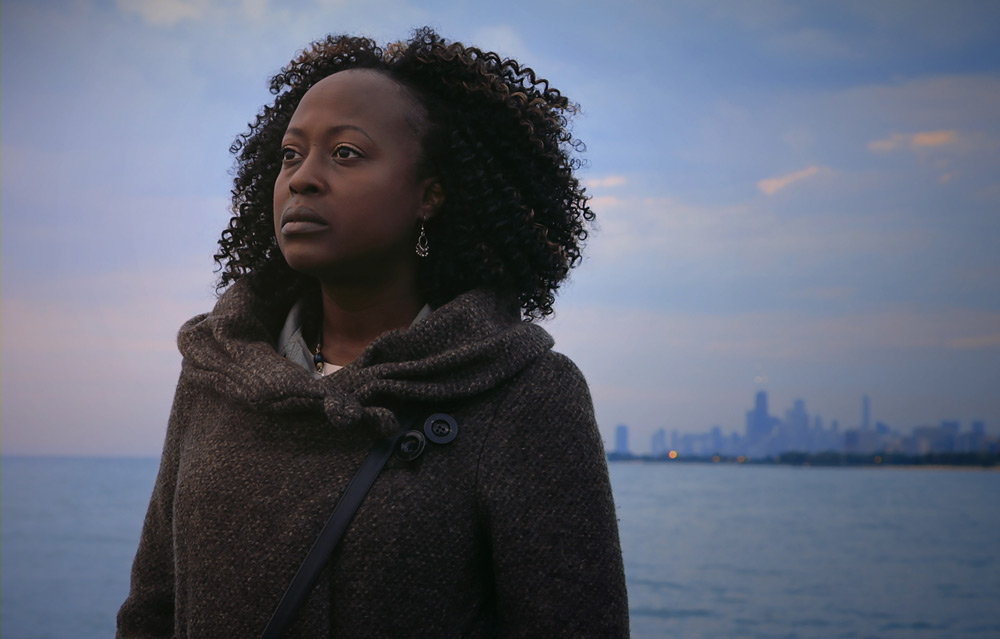There are hints early in “Rogers Park” that not all is well, yet Grace (Sara Sevigny) and Zeke (Antoine McKay) would seem to be blissfully unaware of it when celebrating their 10th anniversary with a festive gathering at their apartment. Although a friend of Grace says she was unsure of what else to get the “woman who has everything,” ultimately settling on bringing a bottle of Prosecco, she’ll later preface her toast to the couple by joking, “We all know how Grace gets when she’s angry,” just as a friend of Zeke’s will mention as a compliment he’s the “sweetest…bloodthirstiest man-eater you’ll ever meet.” These vague references to discontent for the happy couple are made explicit when Grace’s brother Chris (Jonny Mars) finally shows up to raise his glass last, outright calling his big sister delusional, still angry about the way she handled their father’s death years earlier.
It’s in stark contrast to the way things appear just 10 minutes earlier at the start of Kyle Henry’s third narrative feature, but that owes to the fact that life stops for no one in “Rogers Park.” Indeed, when we first meet Zeke and Grace, they are the picture of stability as you see her tending to a preschool she founded while he collects a hefty commission as a savvy real estate broker. Yet the anniversary party brings into sharp relief how professional success has come at a personal cost to the pair, with Zeke even attempting to suggest in his drive to give his wife the best life possible, he must’ve forgotten to make that reservation for a proper anniversary dinner. Their relationship also stands in stark contrast to the other couple in the film, the aforementioned Chris and his longtime girlfriend Deena (Christine Horn), who are also suffering through some malaise as their work in writing and political activism, respectively, goes largely unappreciated, and in turn seems to filter back into their feelings towards each other.

There’s also an impressive sense from cinematographer Drew Xanthopoulos’ vivid lensing of the frenzy of daily life inside the monotony of it, roaming about intensely in staid situations with characters asking for space from each other that they may grant, but the camera doesn’t give an inch on. Yet as relentless as “Rogers Park” may feel, it’s how Henry achieves a vibrance that is rare among domestic dramas of this ilk, envisioning personal and professional hardships as part of what keeps things interesting rather than consigning them to gloomy obstacles to overcome. The challenges thrown at the couples in the film, often of their own making, have just as much power to make them stronger as it does to weaken them and “Rogers Park” rivetingly rides the waves of emotion that come as Zeke, Grace, Chris and Deena endure those extremes, but also seizes upon those fluctuating tides for a edifying experience that draws its crackling energy and joy not from watching its characters reach definitive conclusions, but keeping up the passion to carry on.
“Rogers Park” does not yet have U.S. distribution. It will play at the Chicago Film Festival on October 23rd at 3:30 pm at the AMC River East 21.




